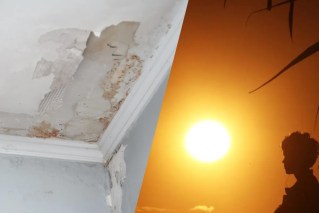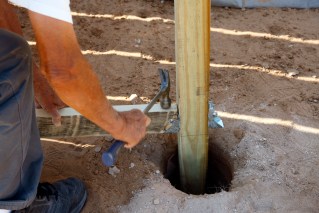Demand for small dogs leading to health issues

The surging popularity of certain pedigree dog breeds in Australia is leading to an increase in the number of pets with serious health problems, veterinarians have warned.
In a report published today in the journal Canine Genetics and Epidemiology, researchers from the University of Sydney point to increasing demand for dogs with short, wide heads, such as pugs and French and British bulldogs.
Known as brachycephalic dogs, these breeds are prone to serious complications such as breathing difficulties, skin and eye conditions and digestive disorders.
• Best and bravest dogs recognised at Royal Easter Show
• ‘Miracle’ cat sent on eight-day journey through the post
• Russia’s military dolphins and other animals with important jobs
“In New Zealand, brachycephalic breeds are number four of the top five dog breeds considered by veterinarians to be unsuitable for continued breeding due to compromised health and welfare,” lead researcher Kendy Teng said.
As the number of these dogs being bred and traded grows, researchers said veterinarians needed to be prepared for a significant increase in cases of diseased dogs.

Vets say pugs like Doug, brachycephalic dogs, are prone to serious complications. Photo: Facebook
One explanation offered for the popularity of these breeds is the trend towards downsizing of our homes and lifestyles.
Honorary Associate Professor Max Zuber from the University of Sydney’s Veterinary Teaching Hospital said people were choosing little dogs because they were living in smaller homes without backyards.
He also believed some people chose brachycephalic breeds because of a perception that they did not need much exercise because of their breathing problems.
“[Owners] think ‘well I can have that dog because I don’t have the time to exercise it and it can’t exercise anyway’,” he said.
Vets report increase in diseased dogs
Dr Julia Crawford from the Australian Veterinary Association said vets were already seeing a rise in the number of dogs needing treatment for brachycephalic conditions.
“We’re seeing a lot of dogs with very, very tiny nostrils, they have a very long soft palate and they often have laryngeal problems … and that means that they have consistent upper airway obstruction,” she said.
“They also get really bad skin folds quite often as their faces get squished up more and more and this leads to chronic skin infections around the skin and their eyes.”
The cost of treating these pets can run into the tens of thousands of dollars and, according to veterinarians, their quality of life and life expectancy is often greatly reduced.
“The estimates can range from something like a four-year-less life expectancy,” Associate Professor Zuber said.
Up to 70 per cent of dogs unable to birth naturally
Breeding standards for pedigree dogs are set by the Australian National Kennel Council (ANKC) and for British bulldogs the standard suggests heads should be “as large as possible”.

The British bulldog, like Otto, is a brachycephalic breed. Photo: ABC
But according to the ANKC as many as 70 per cent of pups are delivered by caesarean section because their heads are too large to pass through the mother’s pelvis.
President of the ANKC Hugh Gent conceded it was a problem and said breeders were working to reduce the size of heads.
“We’re also trying to breed them with larger pelvic girdles so they can have them … but it’s really to avoid the distress and pain of having to try and pass a puppy with a big head,” he said.
Associate Professor Zuber said the ANKC should look at their breeding standards instead of seeking to re-engineer dogs.
“I would personally feel as a profession we should be advising that that’s an inappropriate breed standard,” he said.
Dr Crawford said breeding standards were based upon current trends in pets.
“If you were to go to the Australian museum, there is an English bulldog from the 1930s that looks nothing like today’s English bulldog,” she said.
“It’s something that breed descriptions need to look after because it’s more important that an animal can breathe than how big their head is.”
– ABC








